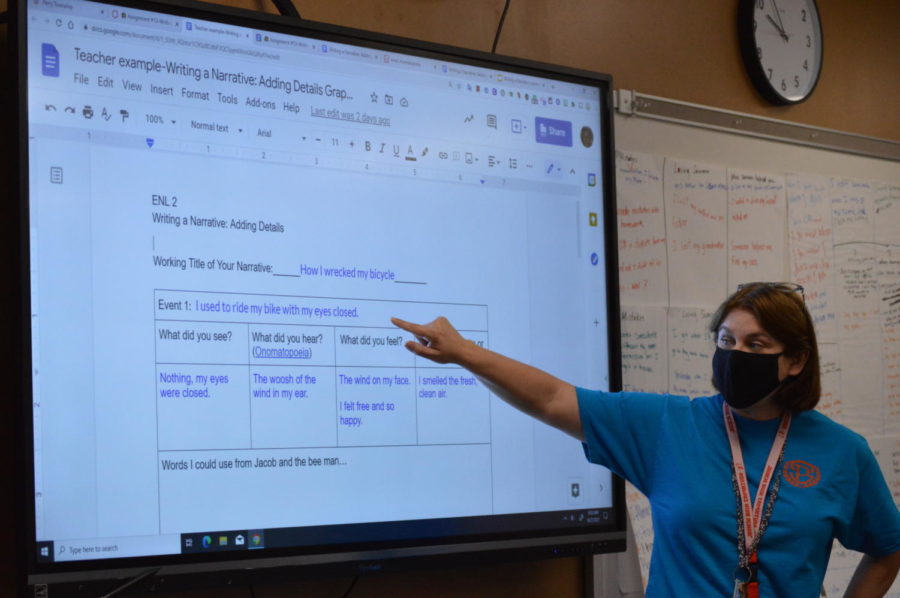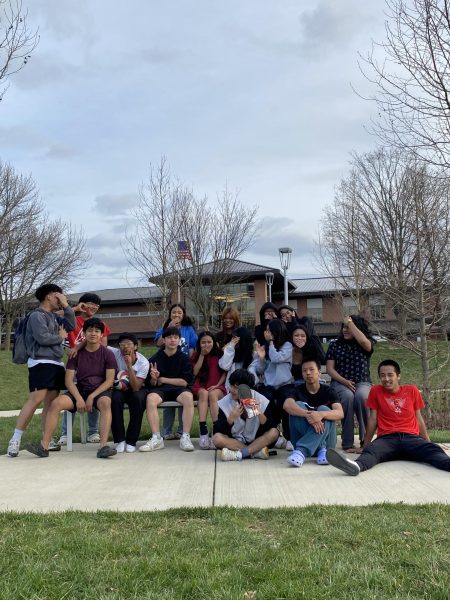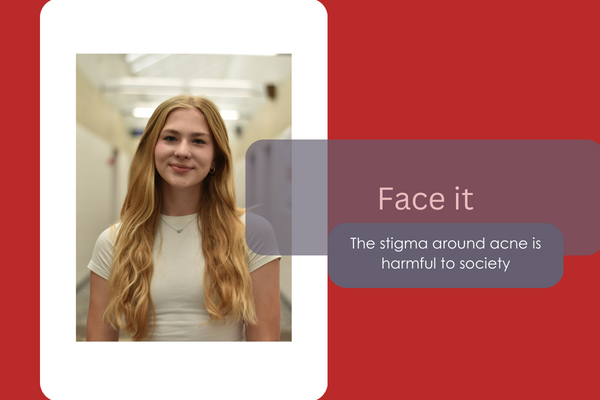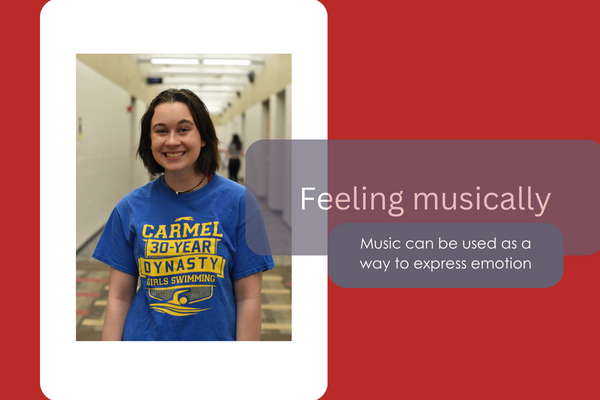One step at a time
Masks has been a difficult obstacle for the EL department
Amy Peddie teaching a lesson in her E.L. class
Learning a new language is hard enough but with the addition of the mask mandate and the transition to in-person learning, the process can be even more difficult, according to E.L. department head Amy Peddie.
Due to these variables, The E.L. department has been struggling to keep its students engaged and learning in school.
“Sometimes we misunderstand each other,” Peddie said. “And sometimes I don’t think they hear exactly what I say.”
English is not everyone’s first language. At SHS, there are so many various languages and cultures that are represented throughout the school, and learning a new language can be particularly difficult when everyone wears a mask.
Peddie faces conflict when trying to find ways to help her students. She wants to keep the masks on in order to keep her students safe and healthy, but it is harder when her students can’t read her lips for the pronunciation.
Therefore, Peddie tries her best to make it easier for her students to have a healthy, yet productive learning environment for her students. She does this by taking time to explain, repeat and use closed captions on videos when needed.
When the whole school went virtual during the pandemic, it was a lot harder than in-person teaching. The distance had made it more difficult to not only teach but also to view the student’s progress.
It was also a challenge for students. Many of them barely speak English and did not have secure access to the internet. Being introduced to online classes and learning how to use websites, like Google Meet, was a confusing process to go through.
“Having kids in school is better than trying to do things at home,” Peddie said. “I feel like this year, even though it’s been frustrating, it’s been good that we are back in the same room together.”
Sophomore Julienn Yafasa is currently an E.L. student in Peddie’s class. Although she strongly feels that masks are hindering her learning, she knows that it is also necessary for her safety.
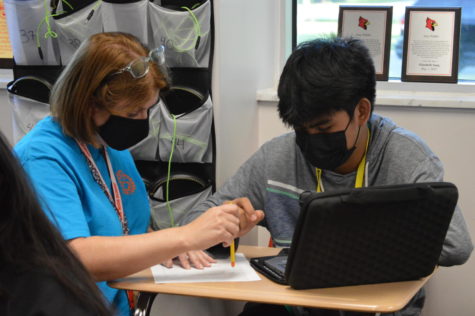
“Sometimes I feel like I can’t breathe,” Yafasa said. “And we can’t wish we should not wear masks because it keeps us safe.”
Yafasa also struggles to hear how the teacher is speaking. She wishes she was able to have someone that spoke the same language as her, to translate or to better demonstrate the lessons that are being taught.
From online learning to in-person, Yafasa sees a major difference in her progress. She feels that she is performing better in-person than she did online. Freshman Thang Muan Lien in Peddie’s class also feels that masks are beneficial to one’s health, but not when trying to learn.
“I like having both online and in-person,” Lien said. “If we have a question in person, we can ask the teacher but, online, it is harder.”
To help kids that are struggling while learning English, Peddie encourages people to speak slowly, repeat things when students ask them to and to be aware that it is difficult for E.L. students to communicate when they can’t see their faces.
E.L. teacher Bob Hoffmann-Longtin has been teaching for 10 years. He teaches the fourth level of E.L. He feels that students are having difficulties in getting back to the norms in school.
“With my students, most of them seem a lot more withdrawn,” Hoffman-Longtin said. “Like they are not ready to engage in class.”
Hoffman-Longtin also agrees with the idea that masks make it tougher to teach and for students to learn.
From online to in-person school, he sees a drastic decrease in the progress of his students. When classes were online, his students focused more on the writing portion than the speaking.
“Children are not moving up quickly and not learning as much,” Hoffman-Longtin said. “The online work last year allowed them to simply not have to speak.”
Some of his students are quiet and soft-spoken. With the masks and being back in-person, he noticed that his students are having a harder time speaking out and actively participating in class.
Upon seeing how his students are being less active in class, Hoffman-Longtin approaches this issue by having students engage in more topics that have a much higher interest level, like reading about a murder case. This seems to grab their attention and make them more interested in being involved in discussions.
Although there are hardships along the way, he also sees the accomplishments and goals that they are able to achieve.
In several of his classes, he sees how students are doing well in the reading assignments.
“Students have done very well,” Hoffman-Longtin said. “I have several kids that are focused and have been successful.”
Different groups of students are more heavily affected by not seeing their teacher’s faces than others. For E.L. learners, since their whole concept is about pronunciation and distinguishing different words, it is more difficult to obtain and engage in lessons.
“It feels overwhelming but learning to take everything one little step at a time is really important,” Peddie said.


Hello everyone, my name is Zing Par and I am a senior at SHS. This is my second year with The Journal, and after taking a year off, I've decided to return...


